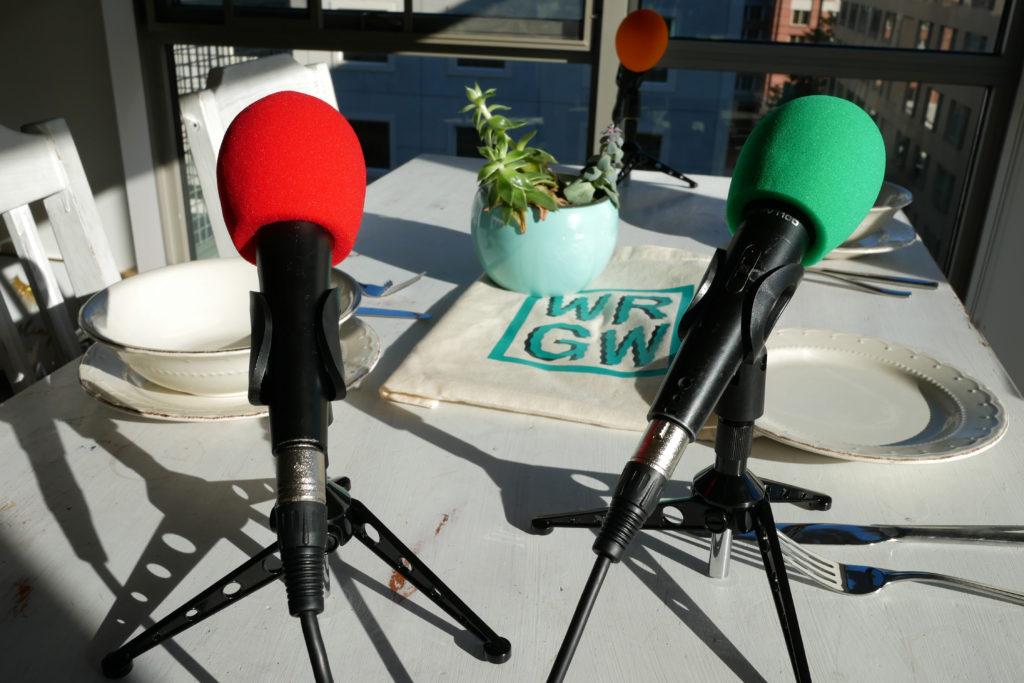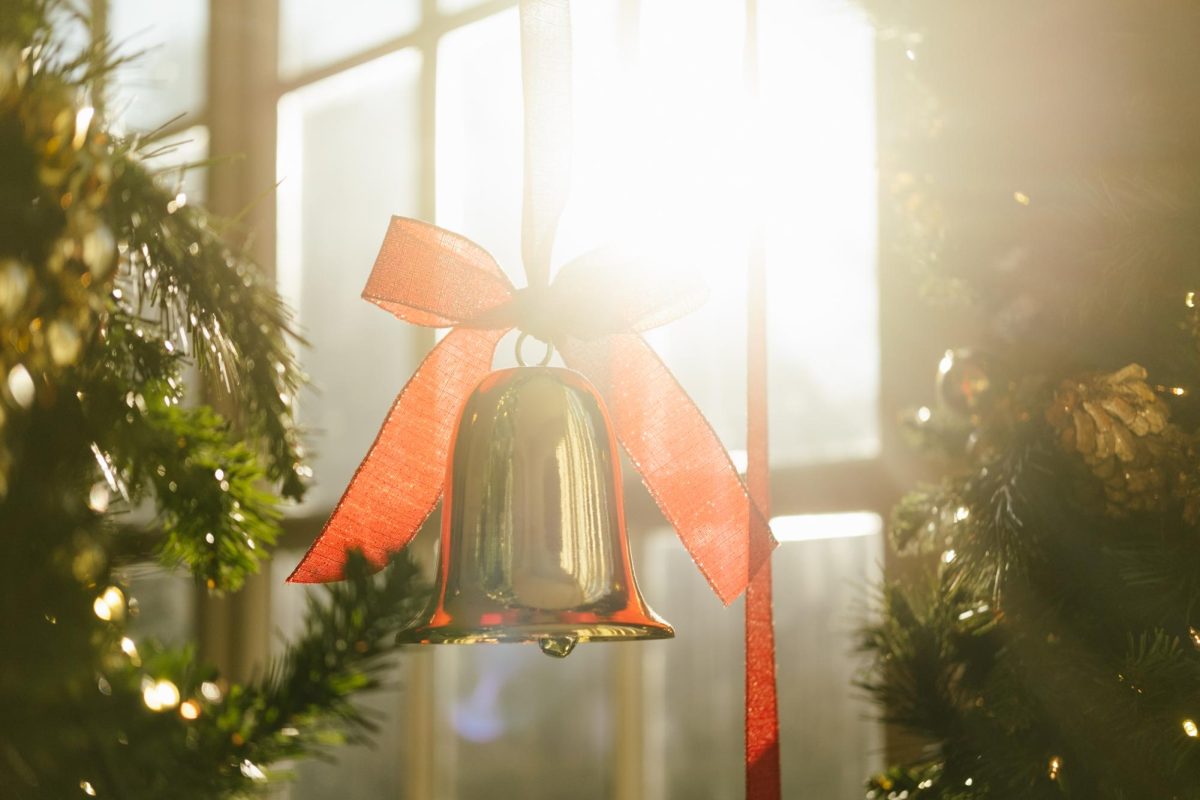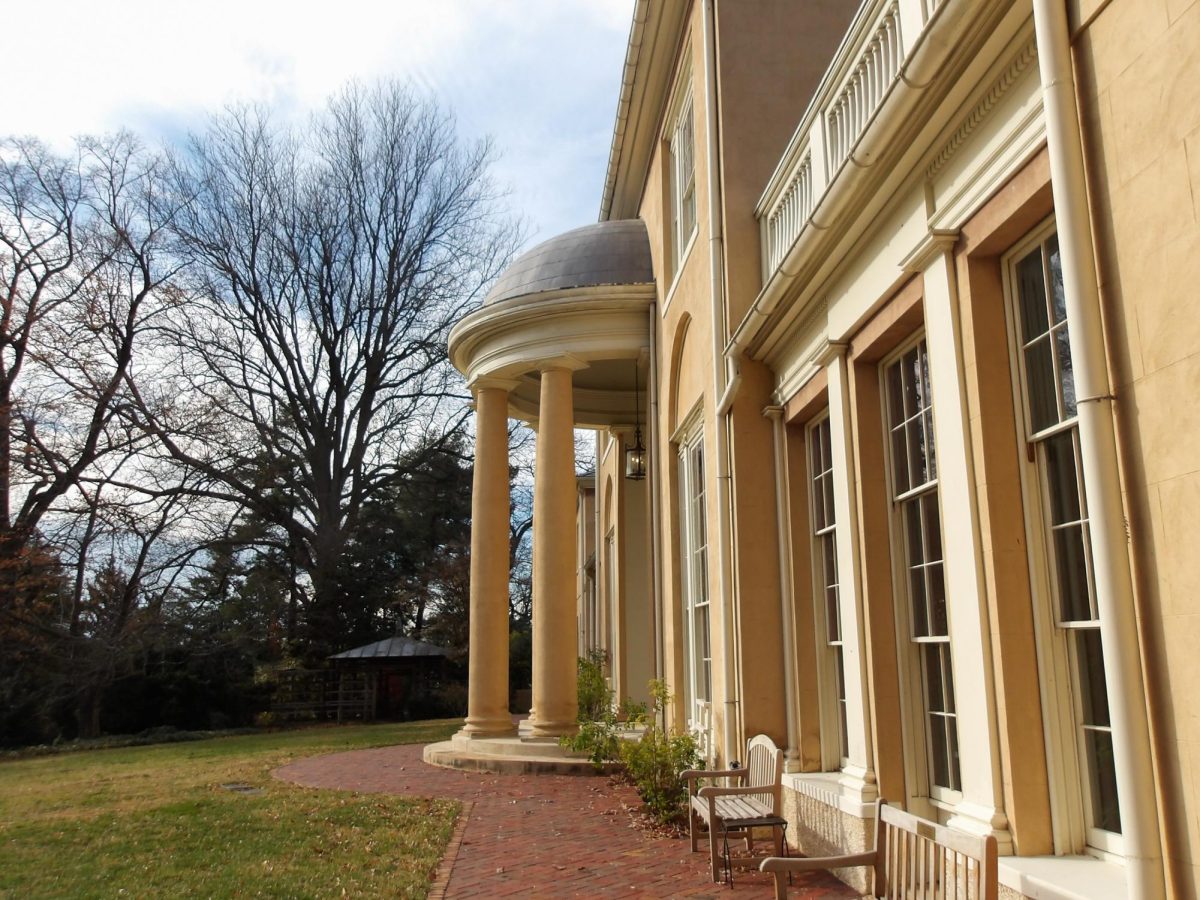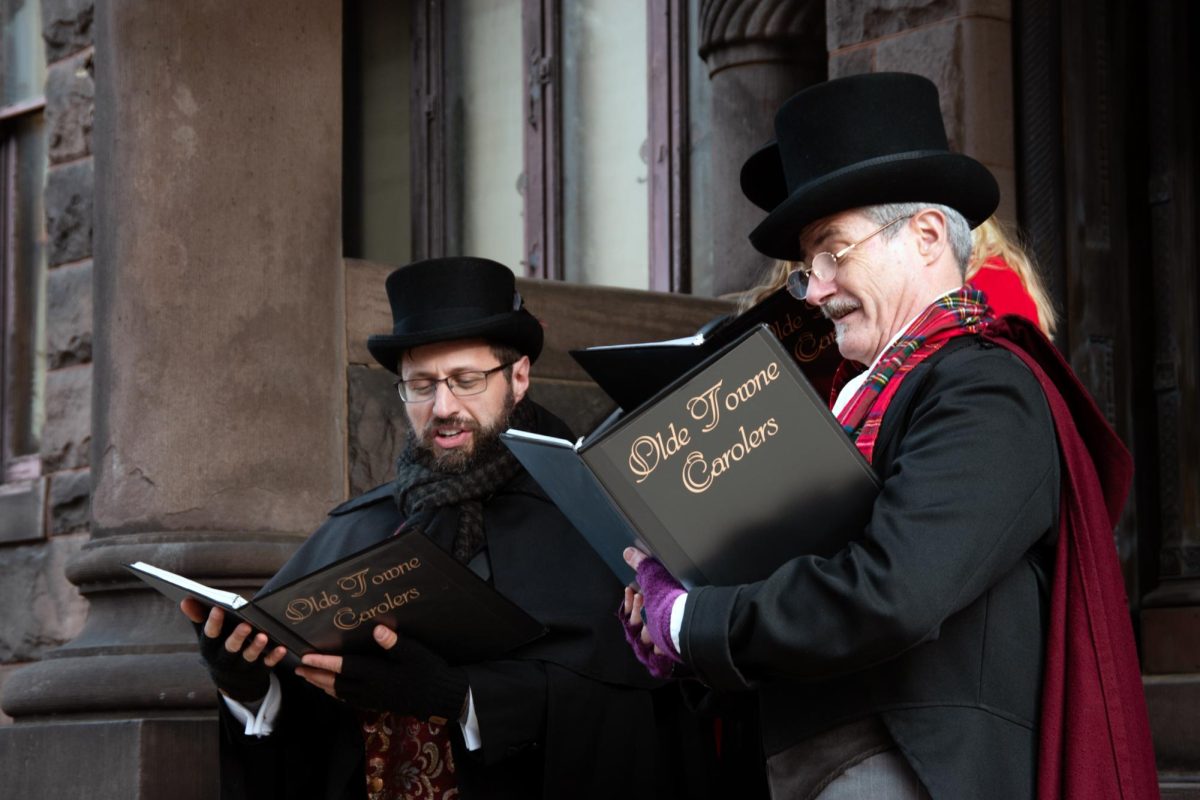Updated: Jan. 16, 2020 at 1:09 p.m.
WRGW’s is creating a podcast series that will connect people from different cultures around a dinner table – literally.
Seniors Janaki Goudar and Sara Tohamy are the hosts of “Food for Talk,” WRGW’s podcast published on Apple and Spotify Monday. The hosts bring in chefs from around D.C. and students interested in cooking to their apartment kitchen table to discuss popular dishes from their culture and how they connect with their background through food.
“I’m a firm believer in the idea that food can bring people together,” Tohamy said. “Despite our differences, everyone can talk about food. Everyone’s got to eat.”
Goudar and Tohamy said “Food for Talk” is a way to unite people beyond common interests and perspectives through food. Each episode explores a dish selected by the guest and a conversation around a dinner table about how the food is significant to the guest’s life, they said.
“Food for Talk” was inspired by Goudar and Tohamy’s travels, they said. While Tohamy studied abroad in Singapore, she invited Goudar to visit and travel together in Thailand and China where they bonded with natives and other travelers over local delicacies. Goudar and Tohamy said they consider the relationships they forged over a dining table as their most remarkable experiences from studying abroad.
“There was this one dish in northern Thailand that we wanted to try,” Goudar said. “One day, we were sitting in the lobby of our hostel and this one guy starts talking to us. We all ended up getting this dish together. By coincidence, I ended up running into him in Peru.”
After Goudar and Tohamy returned to the U.S., they said they wanted to continue exploring different foods from around the world. The podcast series allows them to taste several dishes and talk with people who can share their favorite dishes from their culture.
“We were lucky enough to be the ones selected,” Tohamy said. “We’re here as long as WRGW will let us be.”
For each episode of “Food for Talk,” Goudar and Tohamy said they first pick a theme that could range from “food as anywhere but home” to “food as resilience,” and guests share stories on the podcast centered around the dish or food they choose. The hosts and guests choose a recipe to discuss in their West End apartment, then cook and talk about the dish together.
Behind the scenes, a production team comprised of WRGW board members operate all technical equipment, record the show and edit the sounds of cooking, eating and discussion, they said.
“We come up with all of the content ourselves,” Tohamy said. “We come up with the themes ourselves. But behind the scenes, there’s way more going on.”
The podcast’s first episode featured a mother-son duo that runs Z&Z Za’atar, a local Palestinian business that sells classic flatbreads at farmers markets in D.C. and Virginia. Mona Dubbaneh said she opened her farmers market stand in 2016, despite her restauranteur father’s warnings to “stay away from the restaurant industry.” Four years later, Dubbaneh and her son, Johnny Dubbaneh, operate three farmers markets stands in the DMV.
In the podcast episode, Goudar and Tohamy learn how to make Z&Z Za’atar’s classic flatbread before sitting down to taste and talk about how the mother and son started their business.
“The second part of our mantra is having stories heard that would normally never be heard,” Tohamy said. “They’re Palestinian. They started from the bottom up. This episode is really cool.”
The second episode’s guests are based on the theme “food as anywhere but home.” Two of Goudar and Tohamy’s friends, seniors Ilona de Heusch-Desquiron and Mahalia Smith, appear on the show to discuss how their international upbringings in Tanzania, Argentina, Shanghai and Haiti influenced their cooking styles. De Heusch-Desquiron prepared a Haitian dish from her childhood while Smith showcased her homemade empanadas.
“We also wanted people that are out of the restaurant business, like everyday GW people,” Goudar said. “You get to talk to your friends about something you don’t talk about every day.”
The next two episodes will focus on a theme of “food as resilience” and how guests found respite in cooking and sharing their craft. Goudar and Tohamy said they will feature stories of immigrant business owners and workers who established a home in D.C. through the comfort of cooking.
“Everyone, to some degree, has experienced adversity,” Goudar said. “We’ve been really inspired by people in Washington who have challenged obstacles in life and have been able to overcome them specifically through food.”
Taylor Galgano, WRGW’s station manager, said the executive board was excited to start their first podcast project.
“We really want the station to be a space where people can pursue all different types of creative endeavors, so this project is really fitting with our mission,” Galgano said.
This post was updated to correct the following:
Due to misinformation from a source, The Hatchet incorrectly reported that the podcast is WRGW’s first. It is now corrected. We regret this error.








